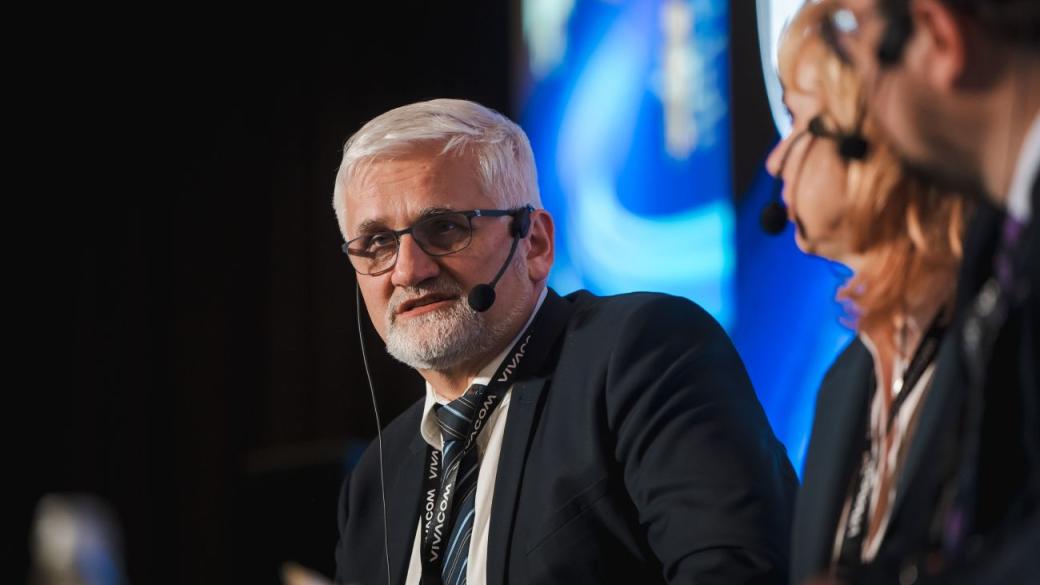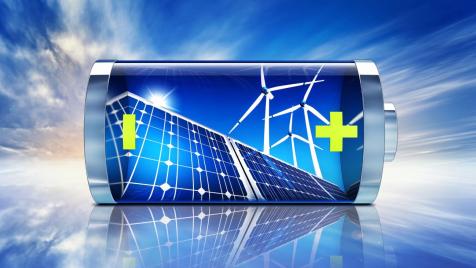Interview | Bulgaria exceeds expectations on some of the EU's decarbonisation targets
Sofia must accelerate the introduction of renewable energy sources, including wind energy
Jan Dusik, Deputy Director-General of the European Commission's Directorate-General for Climate Action:

Mr Jan Dusík has spent his entire career in the environmental and climate policy and law. He worked at the Ministry of Environment of the Czech Republic for 12 years, including as the Minister of Environment in 2009 – 2010. In 2011, Mr Dusík became the Deputy Regional Director of the United Nations Environment Programme (UNEP) and was subsequently appointed as UNEP’s Regional Director for Europe, followed by serving as UNEP’s Principal Adviser on Strategic Engagement for the Arctic and Antarctic. In 2020, he joined the WWF Global Arctic Programme, leading the work on Arctic Sustainable Development and Governance.
In 2022-2024, he held the position of the Czech Government Envoy for International Climate Negotiations. In September 2024, he was appointed Deputy Director General in DG Climate Action of the European Commission.
Mr. Dusík holds a doctorate in law from Charles University in Prague and a Master of Science degree from the University of Oxford (Environmental Change Institute).
Mr. Dusik, let’s talk about the Green Deal and the Clean Industrial Deal. Many companies in Bulgaria hear both terms, sometimes interchangeably. What is the practical difference between the two for industry and investors?
The Green Deal has been developed since 2020. So it is a strategy that is broader than industry and climate action - it goes into environment, biodiversity, circular economy, etc. And it also goes both towards energy industry but also also the society. What we try to do in the Clean industrial deal, which was adopted in February this year, is to zoom in on the industrial decarbonisation and to basically connect the decarbonisation with competitiveness and to identify what are the bottlenecks that we need to address in order to be able to move on, both being competitive and decarbonisation. So it just looks into six priority areas. And for each of them we have we have concrete programmes, we have strategic dialogues with the different industries. So, this is the framing of our interaction with the industry, more specifically two types of industries - one is the energy intensive and the other is the cleantech sector.
During the international conference iN Sofia 2025, you also talked about the importance of balancing competitiveness and decarbonisation. What new opportunities for Bulgarian companies does the Clean Industrial Deal create in terms of investment, technology, and market access?
Obviously important, and that's what we are hearing from the industries many times, is the predictability and clarity of regulation. So this relates to setting the targets and then being able to relate to the targets and not change them every now and then. But it also relates to being able to, adjust the pathway, be open to simplifying, to adjusting concrete measures when we see that things are not working in the most efficient way. We maintain the targets, we are finding the ways how to best achieve those targets.
Second area is the financing, which can partly go from the public budgets. But the big power of the decarbonization agenda is the emission trading system and the revenues of the ETS that are constantly growing and basically putting all those revenues back into decarbonization through national envelopes, through European funds, such as the Modernization Fund or the Innovation Fund.
Now we will be adding also the ETS too for transport and building sectors, together with the Social Climate Fund. So there is there is public funding and also the private one which is not just grants – it is also about investment conditions. It's about de-risking of capital, working with the commercial banks, working on sustainable finance, opportunities to basically showcase to also use mechanisms like contracts for difference or power purchase agreements, for businesses, so that they know that when they invest that the investment will pay back, that they are able to profit from the investment.
How does the Clean Industrial Deal address access to financing for both bigger and smaller enterprises?
The financing needs to work for both the big ones, and the small and medium enterprises. There is a dedicated package “Support and simplification for SMEs” going through the legislative process.
And in the EU, what we are aiming to do with the innovation fund, but in the future through the Industrial Decarbonisation Bank, is to really unlock the various opportunities for various sectors and types of enterprises, because in the end of the day, if we want to achieve climate neutrality, we need to look into, into all sectors.
The emission trading system is proven to be the most economically effective instrument to bring down the emissions. This is why it's not just in EU where we have an ETS – there are more than 70 carbon pricing systems around the world, some of them ETS, some of them carbon tax or a mixture.
We can see that these economic instruments can work in the best way.
What regulatory support can Bulgarian firms rely on under this Deal to help them modernise, decarbonise and stay competitive?
We are setting the framework to give you a concrete pathway. We are now discussing the 2040- we have proposed a 90% emission reduction. Next week we will probably see whether this target is approved. After we have this target, we will draft a so-called post 2030 legislative package.
So how do how does this translate to concrete instruments? That will spell out what needs to happen in the heavy industry, in the clean tech industry, in renewables, in energy saving, etc..
This then translates to the national level.
So Bulgaria has a national energy and climate plan, which is basically the cookbook how to deliver on the on the 2030 target. We anticipate that the same will be for the post 2030 period as well.
And this is already very concrete for the companies in Bulgaria to see how the how the government is planning to go in different parts of the economy in filling in the target. So it's a combination of efforts from the European institutions. We are overseeing the implementation.
But the core responsibility, with the national governments which also have financial instruments, they are making decisions how to best use the modernization fund or how to allocate the social climate fund. So it is a symbiosis between the European and national level.
How does the Commission assess Bulgaria’s progress so far on its national climate and energy plans – and where does it see the biggest gaps?
We can see that in some aspects of the European goal of decarbonization, Bulgaria exceeds the expectations, the so-called effort sharing regulation. We see that the percentages that were envisaged that you are already exceeding and that's good news.
There are some other parts of it – like land use, change and carbon sinks in the forestry sector in particular, there is a gap.
So it's always a balancing act. But all in all, we see an opportunity for Bulgaria in the current period even to possibly trade with other member states the surplus on the effort sharing.
When it comes to the use of the funds that are available, we feel that it can be fastened in relation to the modernization fund and also the thinking about the use of the cohesion funding and how that can be diverted into decarbonization. There is more potential for that.
And then we have some European instruments such as the Innovation Fund, where we have the first Bulgarian project adopted, and we hope that there will be more good project proposals coming.
What milestones should Bulgaria accomplish in the next 1.5 – 2 year in terms of the Clean Industrial Deal?
One thing is the introduction of the CBAM - the carbon border adjustment mechanism. It needs to be set on a good path from the 1st of January 2026 it will be fully applied.
This will need the attention of the national authorities to to collect CBAM, to register and to make sure that there is no circumvention of the requirements.
And this is very important for the for the businesses in Bulgaria and in Europe overall to know that, there is no danger of carbon leakage and relocation of production outside of the EU.
The other aspect where we see a potential and we see that more can be done is on the renewables and speeding up of the deployment, in particular in the wind energy.
We are seeing some good progress on the on the solar photovoltaic and thermal, but the capacity for wind, both onshore and offshore is something which can be used further and that can help balance. It can also help address the price of energy. That can bring part of the answers of being able to deliver on the decarbonisation agenda.

 Simona Gotsova
Simona Gotsova 

